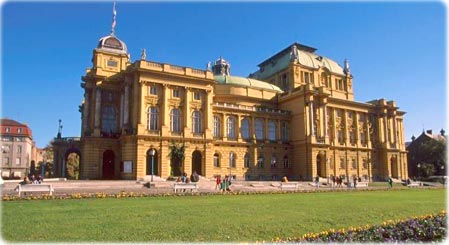Croatia
(local: Republika
Hrvatska) is a country in the Balkan Peninsula, in the Southeast Europe, with
5,835 km of coast in the Adriatic Sea, including many islands. The capital is
Zagreb.
The lands that today comprise Croatia were part of the Austro-Hungarian Empire in the beginning of the 20th century. In 1918, the Croats, Serbs, and Slovenes formed a kingdom known after 1929 as Yugoslavia. In the second half of the last century, Yugoslavia was an independent Communist state. Although Croatia declared its independence from Yugoslavia in 1991, it took four years of sporadic, but often bitter, fighting before occupying Serb armies were mostly cleared from Croatian lands. Under UN supervision, the last Serb-held enclave in eastern Slavonia was returned to Croatia in 1998.





